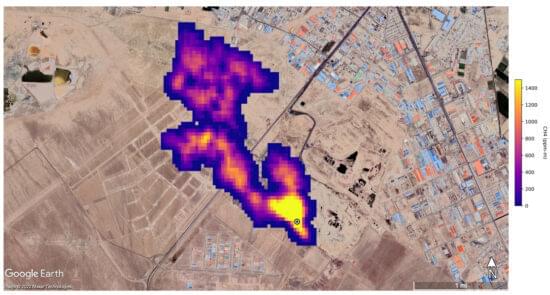A spectral image of methane entering the atmosphere caused by decomposition at a waste disposal site was produced by EMIT.
It is called EMIT and it can pinpoint methane emissions from human activities. Methane is a potent greenhouse gas.


SITTING at the intersection of microscopy and art, these dazzling images are some of the best entries for the Nikon Small World 2022 Photomicrography competition, a global contest that showcases the beauty of science on the microscale.
A fly is clasped by its eyes under the chin of a tiger beetle in the image above, the 10th place entry taken by Murat Öztürk. But this is no tender embrace. Thanks to their strong jaws and ability to run at up to 8 kilometres per hour, tiger beetles make for formidable predators for their prey, which also include ants, spiders and caterpillars.
Egypt hides many secrets.
The modern country we see today was built atop thousands and thousands of years of history crafted by countless pharaohs and rulers that reigned over the land of the golden sands and the River Nile.
And while we have uncovered many of ancient Egypt’s histories and secrets, many more remain hidden beneath the sands of the land of the pharaohs, waiting for the day when adventurous explorers will uncover that which has remained hidden for millennia.


A high-severity vulnerability has been disclosed in the SQLite database library, which was introduced as part of a code change dating all the way back to October 2000 and could enable attackers to crash or control programs.
Tracked as CVE-2022–35737 (CVSS score: 7.5), the 22-year-old issue affects SQLite versions 1.0.12 through 3.39.1, and has been addressed in version 3.39.2 released on July 21, 2022.




They also discovered the earliest proof of the moment when the planet’s magnetic poles switched places.
The Earth’s crust was pushing and tugging like present plate tectonics at least 3.25 billion years ago, according to new research published today (Oct .24) in PNAS, which examined fragments of the most ancient rocks on the planet.
The research also offers the oldest evidence of the moment when the planet’s magnetic north and south poles switched places.
The two findings provide hints as to how such geological changes may have produced a planet with a more favorable environment for the emergence of life.
